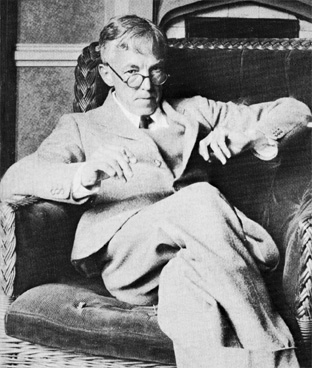G. H. Hardy
 Godfrey Harold Hardy (7 February 1877 – 1 December 1947) was an English mathematician, known for his achievements in number theory and mathematical analysis. In biology, he is known for the Hardy–Weinberg principle, a basic principle of population genetics.
Godfrey Harold Hardy (7 February 1877 – 1 December 1947) was an English mathematician, known for his achievements in number theory and mathematical analysis. In biology, he is known for the Hardy–Weinberg principle, a basic principle of population genetics.Hardy is famed for his 1940 essay ''A Mathematician's Apology'', often considered one of the best insights into the mind of a working mathematician written for the layperson. The novelist Graham Greene ranked it with the notebooks of Henry James as "the best account of what it was like to be a creative artist."
Starting in 1914, Hardy was the mentor of the Indian mathematician Srinivasa Ramanujan, a relationship that has become celebrated. Hardy almost immediately recognised Ramanujan's extraordinary albeit untutored brilliance, and Hardy and Ramanujan became close collaborators. In an interview by Paul Erdős, when Hardy was asked what his greatest contribution to mathematics was, Hardy unhesitatingly replied that it was the discovery of Ramanujan. He remarked that on a scale of mathematical ability, his ability would be 25, Littlewood would be 30, Hilbert would be 80, and Ramanujan would be 100. In a lecture on Ramanujan, Hardy said that "my association with him is the one romantic incident in my life". Provided by Wikipedia
1